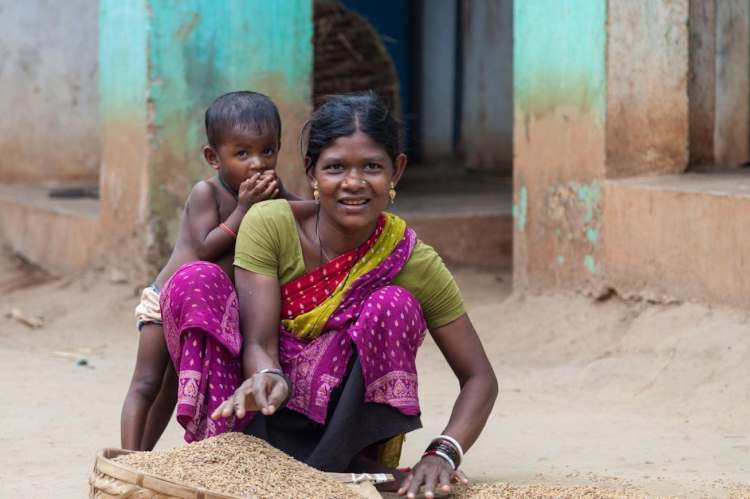
Climate change poses a critical global challenge with far-reaching effects on communities across the globe. It impacts all individuals, yet women are disproportionately affected due to existing inequalities and varying capacities to cope. Women, frequently marginalised and dependent on natural resources, encounter increased risks due to their exclusion from environmental decision-making processes. The United Nations Framework Convention on Climate Change (UNFCCC) has highlighted that women bear an unequal share of climate change risks and burdens.
Future projections indicate that women are likely to face severe long-term effects from climate change’s widespread impacts. To address these challenges effectively, there must be a shift from traditional divisions of health, gender, and environment towards proactive, gender-inclusive solutions. Policymakers must prioritise women’s health and leverage their potential to mitigate, adapt to, and respond to climate challenges.
READ I G20 embraces women-led development as Africa joins the table
Climate change and women
In 2017, the UNFCCC adopted the Gender Action Plan to enhance knowledge and implementation of gender-responsive climate action and ensure its integration across the work of parties, the secretariat, UN entities, and stakeholders at all levels. This plan also emphasises the importance of women’s full, equal, and meaningful participation in UNFCCC processes.
The visibility of global environmental concerns has increased, with climate change driving up water levels, land loss, greenhouse gas emissions, and threatening cultural values. These issues underscore the urgent need to reorient our agendas to address gender disparities. India is the 7th most vulnerable country to climate change, with notable warming trends since 1901. Indian women, in particular, face significant climate-induced health risks, exacerbated by poverty and gender inequality. Despite this, integrating policies to tackle these challenges remains complex.
A UN Women report projects an increase in extreme poverty and food insecurity among women by 2030 due to climate change. Women’s disproportionate household responsibilities and the adverse effects of climate change significantly impact their livelihoods and well-being. Women, often earning less and working in low-paying jobs, are negatively affected more than men, particularly as they move to urban areas seeking employment. Additionally, funding cuts to social security schemes like MGNREGA hinder rural women’s ability to adapt to climate change.
Climate change in India is wreaking havoc on water availability, with erratic rainfall patterns and rising temperatures leading to droughts and depleted groundwater resources. This disproportionately impacts women, who often bear the responsibility for water collection within families and communities. Spending hours searching for water not only cuts into their productive time but also exposes them to health risks and potential violence in vulnerable situations. The burden of water scarcity further limits their ability to maintain hygiene and sanitation, especially during menstruation and pregnancy, impacting their health and well-being.
Women in India, particularly those in rural areas, play crucial roles in agriculture and allied sectors like dairy and fisheries. These sectors are highly vulnerable to climate change, with erratic weather patterns impacting crop yields and livestock health. Droughts and floods destroy crops and disrupt traditional farming practices, leading to income loss and food insecurity. This vulnerability is further amplified by limited access to resources, credit, and decision-making power, putting women at a disadvantage in adapting to changing climatic conditions.
Climate policy from a gender perspective
India’s climate policies seek to align development with climate goals, as seen in the Energy Conservation Act of 2001 and the National Action Plan on Climate Change (NAPCC) of 2008. The NAPCC recognises the significant impact of climate change on women and stresses the importance of gender-sensitive adaptation strategies.
Despite India’s commitment at COP26 to reduce emissions and achieve net-zero by 2070, gender-responsive climate financing is woefully inadequate globally, with less than 2% of climate investments in 2021 addressing gender concerns. India’s Nationally Determined Contributions (NDCs) overlook gendered vulnerabilities, underscoring the need for more inclusive gender-responsive strategies.
Opportunities exist to enhance gender inclusivity in climate policy, particularly through the revision of State Action Plans on Climate Change (SAPCCs). While climate change exacerbates gender inequities, particularly in health, proactive, gender-responsive strategies can leverage women’s roles and capacities for significant positive change.
It is crucial to address the gender disparities in India’s climate response, given the significant challenges women face, including violence, limited access to resources, and exploitation. While there is a gradual incorporation of gender considerations into climate policies, the focus on gender-specific vulnerabilities and adaptive capacities is inconsistent.
India must prioritise gender-responsive climate policies to mitigate the disproportionate impacts on women. Women’s caregiving responsibilities and their livelihoods, especially in agriculture and forestry, are at significant risk. Moreover, their underrepresentation in climate decision-making hampers effective solutions.
India should empower women and ensure their equal participation in decision-making processes. This involves policies that promote access to resources, education, technology, and leadership roles for women. Targeted climate adaptation strategies and funding mechanisms are essential to support women’s livelihoods, especially in rural areas. Capacity-building and awareness campaigns are also vital to equip women for climate resilience and mitigation efforts.
(Dr Md Mashhood Alam is Senior Research Associate with BRCG Research & Development Foundation. Views are personal.)
